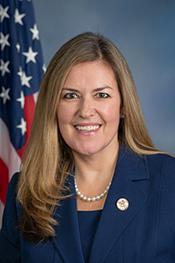0
Data to Save Moms Act
2/7/2024, 1:32 PM
Summary of Bill HR 3320
Specifically, the Data to Save Moms Act would establish a national database to track and monitor maternal health outcomes, including information on the causes of maternal deaths, disparities in maternal health outcomes, and the impact of pregnancy-related complications on women's health. This data would be used to identify trends and risk factors, inform public health interventions, and improve the quality of care for pregnant and postpartum women.
In addition to collecting data, the bill also includes provisions to improve maternal health care delivery, such as expanding access to prenatal and postpartum care, promoting evidence-based practices in maternity care, and supporting health care providers in addressing maternal health disparities. Overall, the Data to Save Moms Act is a comprehensive piece of legislation aimed at addressing the maternal health crisis in the United States by improving data collection and analysis, promoting evidence-based care, and reducing disparities in maternal health outcomes.
Congressional Summary of HR 3320
Data to Save Moms Act
This bill expands data collection and research on maternal morbidity and mortality among racial and ethnic minority groups.
Specifically, the bill adds requirements to certain grants awarded by the Centers for Disease Control and Prevention (CDC) for maternal mortality review committees. To the extent practicable, grant-funded committees must
- use the most up-to-date indicators of severe maternal morbidity;
- review deaths caused by suicide, overdose, or other behavioral health conditions attributed to or aggravated by pregnancy or childbirth; and
- consult with representatives of communities disproportionately affected by adverse maternal outcomes about nonclinical factors that may contribute to those outcomes.
The CDC may also award grants to committees to increase their engagement with local communities, such as by bringing on community representatives as committee members.
Additionally, the Centers for Medicare & Medicaid Services and the Agency for Healthcare Research and Quality must consult with stakeholders to review maternal health data collection processes and quality measures and make recommendations to improve them.
The Department of Health and Human Services must also support studies on adverse maternal health outcomes among American Indian and Alaska Native populations and other racial and ethnic minority groups.





